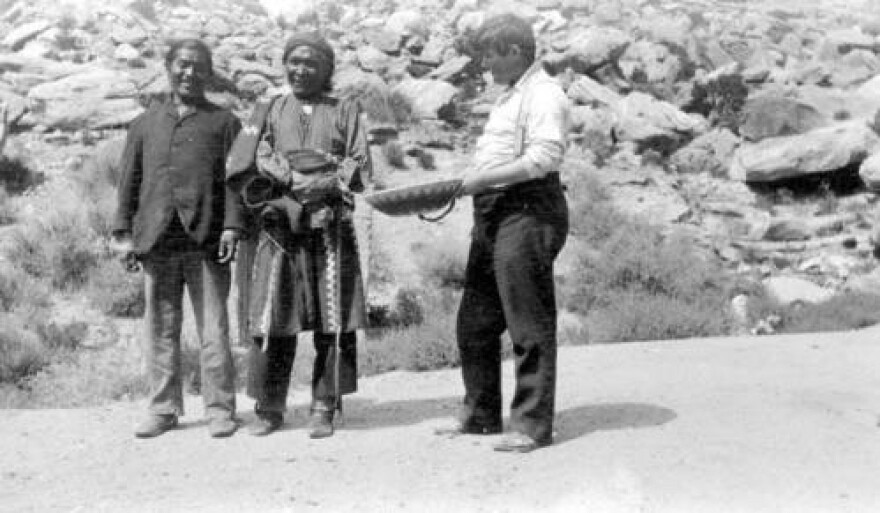The Grand Canyon, Wupatki National Monument and Sunset Crater Volcano are some of the geologic and cultural gems of the National Park Service. This summer, KNAU's Earth Notes series will highlight these, and other special places across the Southwest in honor of the Park Service's 100th anniversary. In the fifth installment of the series, we look at Hubbell Trading Post in Ganado, Ariz., which served as a community hub since it opened in the 1870s.
“Dear Friend Hubbell…” began many a letter to John Lorenzo Hubbell, who opened the Hubbell Trading Post at Ganado, Arizona, around 1878. Some letters were requests for money – or help informing an absent family member a relative had died.
Hubbell was an old-style patriarch with Yankee and New Mexico family connections – hence his Navajo nickname “Naakai Sani,” which means “old Mexican.” Now a series of interviews with people connected to his trading post is revealing more about the mark he left on his varied communities.
People traveled up to two days to reach this community hub. They might be offered free tobacco or some tinned tomatoes while they waited to trade wool, woven rugs, jewelry, dried peaches or apricots for trade items like coffee and sugar.
Hubbell gave food to the needy, too. When Ganado man Tom Todecheenie was orphaned two weeks after birth in 1926, the trader gave his grandfather cans of condensed milk to mix with water and feed to baby. Tom is in his late 80s today.
These philanthropic habits meant Hubbell was never a rich man. But Hopis trusted him so much that Snake Society priests brought their ceremonial regalia to Hubbell for safekeeping during times of tribal conflict.
Run by the National Park Service as a National Historic Site since 1967, Hubbell is one of the few original trading posts still operating. Walk in today, and you’ll see the original U-shaped counter known as the “bull pen,” with traditional staples on sale alongside rugs and jewelry.









